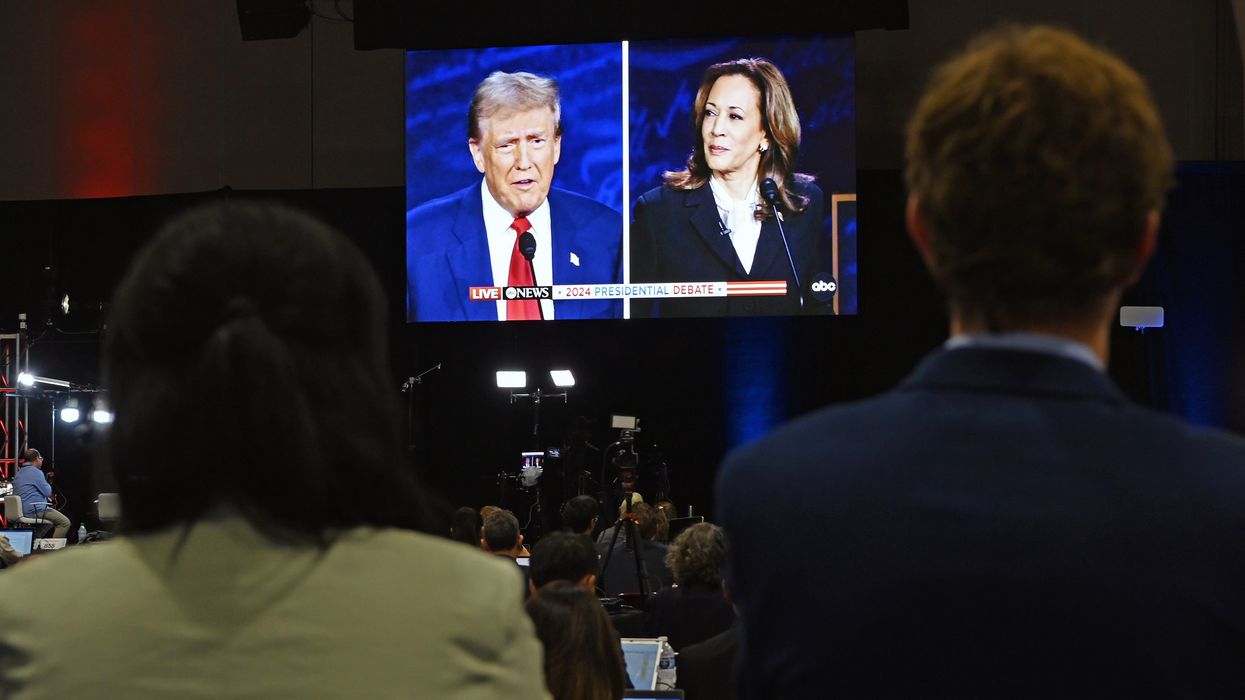Schmidt is a columnist and editorial board member with the St. Louis Post-Dispatch.
The 2024 election is shaping up to be a “Better the devil you know than the devil you don't know" kind of contest.
That saying is rooted in ambiguity aversion bias. Even if a situation is bad, individuals would rather stay with what they know rather than face uncertainty.
So it goes with our presidential nominees, Vice President Kamala Harris and former President Donald Trump. Not liking Trump the man may not be enough for Harris to beat the former president.
Behavioral economists describe ambiguity aversion, or uncertainty aversion, as the tendency to favor the known over the unknown, including known risks over unknown or incalculable risks. In a professional situation, one would prefer to have contact with or do business with a person they already know, even though they don't like them, than with a person they hardly know. This principle also seems to apply to political candidates and voter behavior.
Voters make choices based on their own information set; this is true regardless of the truth, accuracy or reliability of their information. Their own data set drives their choices, which they believe will result in the best expected outcome.
A recent New York Times/Siena poll illustrated this fallacy in action. The poll shows Trump with a 52 percent unfavorability rating. The poll also has Trump ahead of Harris nationally by 2 points; 46 percent to 44 percent.
Of course, there is the margin of error, but something has to account for the approximate 6 percent of voters who view Trump as unfavorable while at the same time said they would be voting for him.
There are certainly voters that will cast their ballots for the former president because they prefer him as a candidate, preferring his leadership or his policies. But a majority of the electorate find Trump distasteful, whether it was his actions surrounding the 2020 election, the events around Jan. 6, 2021, his felony indictments, the fact that he is an adjudicated sexual abuser, or even just his obnoxious social media posts. Yet despite all of that, a majority of voters may just pull the lever for a Trump/Vance ticket since they are unsure about Harris/Walz.
The same poll asked the following: Do you feel like you still need to learn more about Kamala Harris, or do you pretty much already know what you need to know? Just more than a quarter (28 percent) of respondents said they needed to know more about her. Of that group, 66 percent said they would like to learn her policies and/or plans.
Only 12 percent said they needed to learn more about Trump.
Harris has only done one recorded interview. While Americans did get to see her on the debate stage on Sept. 10, she did not give many details on her administration’s plans. It took five weeks for the Harris campaign to add an “issues” section on her campaign website and even then, it was remarkably vague.
To date, Harris has not taken questions from the press pool and. as of this writing, has no other interviews scheduled, all of which impedes voters getting to know her better.
It remains to be seen whether there will be any further debates between Harris and Trump, although Trump indicated on Sept. 12, that there would be no more, which again would deny voters additional opportunities to learn more about Harris.
While it is also too soon for post-debate polling on the candidates, most observers and pundits remarked at how crazy Trump seemed during the ABC News debate, especially when he falsely claimed that Haitian migrants in Springfield, Ohio, were stealing people’s dogs and cats and eating them. Then again, this type of behavior might be baked into the cake after watching and listening to him for the last 10 years.
The dominant media narrative is missing the ambiguity aversion by assuming that Americans will be so turned off by Trump’s antics they cannot possibly vote for him. However, rightly or wrongly, many Americans think back nostalgically on the pre-pandemic economy or remark on how there were no wars going on while Trump was president. While they might not like Trump’s character or behaviors, they felt more prosperous and safer in contrast to the uncertainty of a Harris administration.
Thus, since Harris needs to move beyond her strategic ambiguity, as it is likely hurting her. Voters want to know more about her policies and agenda, and broad, sweeping statements may not cut it anymore.
Unless voters get to know Harris better and like what they see and hear, they might just default to the devil they know in November.




















 From left to right: Gabriel Cardona-Fox, Bud Branch, Joe Concienne
From left to right: Gabriel Cardona-Fox, Bud Branch, Joe Concienne 